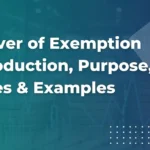Introduction to Oral Wills
An oral will, or nuncupative will, is a verbal declaration of how a person wants their assets distributed after their death. It’s a last-resort tool, often used in emergencies, but it comes with legal risks.
Key Takeaways
- Oral Wills Are a Last-Resort Option
- Oral wills provide flexibility in emergencies, allowing testators to express their wishes verbally when written documentation isn’t possible.
- Limited Legal Recognition
- The validity of oral wills varies by jurisdiction, with many requiring strict adherence to specific conditions, such as witness testimony and time-bound execution.
- Significant Risks and Challenges
- Oral wills are prone to disputes, fraud allegations, and misinterpretations due to the lack of formal documentation, making them less reliable than written wills.
- Witnesses Play a Vital Role
- The credibility and impartiality of witnesses are critical in validating oral wills, as their testimony often serves as the sole evidence of the testator’s intent.
- Technology Can Aid in Validation
- Tools like video recordings and audio memos can provide additional evidence for oral wills, though their legal acceptance is still evolving.
What Is an Oral Will?
An oral will, also known as a nuncupative will, is a verbal statement made by an individual (the testator) about how they wish their assets to be distributed after their death.
Unlike a traditional written will, an oral will is not documented on paper but is instead spoken, typically in the presence of witnesses. This type of will is often used in emergency situations, such as when someone is critically ill or facing an unexpected life-threatening event.
Why Are Oral Wills Important?
Oral wills play a significant role in estate planning and financial inheritance, especially when unforeseen circumstances arise. While not as common as written wills or trusts, they serve as a last-resort method to ensure the testator’s intent is honored, even if formal documentation is not available. However, they come with legal complexities and are not always enforceable in every jurisdiction.
The Link to Wealth Management
From a financial perspective, oral wills can impact the distribution of assets like real property, investments, and financial accounts. They can create complications during the probate process, especially when family members or beneficiaries dispute the testator’s wishes. Understanding oral wills is crucial for anyone involved in estate administration or inheritance planning.
Historical Background
The Origins of Oral Wills
Oral wills date back to ancient times when literacy was less widespread, and verbal agreements were the norm for expressing testamentary intent. Historically, they were commonly used in emergencies, such as during wartime or by individuals on their deathbeds. These wills relied on witnesses to attest to the deceased’s final wishes, forming the foundation for what we now refer to as nuncupative wills.
Cultural and Societal Contexts
In many societies, oral wills were an accepted part of inheritance planning. For example:
- In ancient Greece and Rome, verbal statements about the transfer of estate assets were often honored, especially in urgent situations.
- In some tribal cultures, oral wills were part of traditional practices where elders passed down wealth verbally in the presence of the community.
These customs demonstrate how oral wills filled the gap when formal documentation was unavailable or impractical.
Relevance in Modern Times
Despite advancements in legal systems and literacy, oral wills remain relevant in specific scenarios. For example, some jurisdictions still allow them for individuals in the military or those in life-threatening situations. However, the enforceability of oral wills depends heavily on local laws, which often require strict probate court verification.
Legal Framework
Where Are Oral Wills Recognized?
Oral wills are not universally accepted, and their legal status varies by jurisdiction. In some countries and states, oral wills are recognized under specific conditions, while others completely prohibit them. Jurisdictions that allow nuncupative wills often do so only in emergency situations, such as:
- In the United States, some states like Texas and North Carolina permit oral wills but with strict limitations.
- In the United Kingdom, oral wills are generally recognized only for military personnel or mariners under the Wills Act 1837.
What Makes an Oral Will Valid?
For an oral will to hold legal weight, it must meet certain requirements. These typically include:
- Presence of Witnesses: Most jurisdictions require at least two disinterested witnesses to hear the will and later testify about its content.
- Testator’s Mental Capacity: The testator must be of sound mind and fully aware of the implications of their verbal instructions.
- Time-Bound Execution: In many cases, oral wills must be officially documented within a specified time, often a few days after the testator’s death, to be valid.
- Restricted Asset Types: Some laws limit oral wills to specific types of assets, such as personal property, while excluding others like real estate or large financial holdings.
Limitations and Challenges
- Disputes and Fraud: Without written evidence, oral wills are prone to disputes, including accusations of coercion or misinterpretation.
- Jurisdictional Variations: Laws governing oral wills differ significantly, making their enforcement uncertain in cross-border inheritance cases.
- Documentation Difficulties: Witness testimony may not always align, and courts require strong evidence to validate such wills.
Examples of Legal Recognition
- In India, oral wills are generally valid under the Indian Succession Act, except for certain individuals, like Hindus, who must use written wills.
- In Canada, provinces like British Columbia do not recognize oral wills, emphasizing written documentation.
- In Germany, oral wills are allowed only in emergencies and must be converted into written form promptly.
Importance in Financial Markets
Impact on Wealth Distribution and Asset Allocation
Oral wills can significantly affect the transfer of wealth and allocation of financial assets, particularly in situations where formal documentation is unavailable. Without a written will, beneficiaries may face:
- Delayed Probate Processes: The absence of a clear, written directive often complicates the division of assets.
- Uncertain Wealth Distribution: Misinterpretations or disputes over verbal instructions can lead to uneven or unintended allocations.
Examples of Affected Financial Instruments
Oral wills may directly influence various marketable assets, including:
- Stocks and Bonds: Verbal declarations might involve transferring investment accounts to specific heirs.
- Real Estate: Although many jurisdictions prohibit oral wills from covering real property, disputes often arise when verbal claims are made.
- Bank Accounts and Personal Property: These are more commonly affected by oral wills, especially for smaller estates.
Estate Administration Challenges
The reliance on oral wills can complicate estate administration, creating:
- Increased Probate Court Involvement: Verifying oral wills often requires legal proceedings, witness testimonies, and additional time.
- Heightened Disputes Among Heirs: Ambiguity in verbal instructions can lead to contested wills and legal battles.
- Financial Risks: Mismanagement of assets during disputes can result in diminished estate value or missed opportunities for beneficiaries.
Real-World Implications
- In a hypothetical scenario, a testator might verbally instruct that a specific investment portfolio be passed to one child. Without written proof, however, the executor or probate court may face difficulties ensuring this transfer.
- Similarly, an oral will covering personal savings could delay inheritance distribution, particularly if witnesses disagree on the testator’s exact words.
Pros and Cons of Oral Wills
Advantages of Oral Wills
- Emergency Situations
- Oral wills are a lifesaver in scenarios where creating a formal written will is impossible, such as during sudden illness or accidents. For example, a person on their deathbed can verbally express their wishes to ensure their estate assets are passed on according to their intentions.
- Flexibility in Last-Minute Declarations
- Unlike written wills, oral wills offer flexibility, allowing the testator to adjust or make decisions without the need for legal documentation. This adaptability is particularly useful for minor estates or personal property that the testator wants to distribute quickly.
Disadvantages of Oral Wills
- High Potential for Disputes
- Without a written record, oral wills are prone to disagreements among beneficiaries. Differing accounts from witnesses can lead to inheritance disputes, complicating the probate process.
- Difficulty in Verification
- Verifying an oral will often requires extensive testimony from witnesses. Courts may question the testator’s mental capacity, the authenticity of the statements, or whether undue influence was involved.
- Limited Legal Enforceability
- Many jurisdictions impose strict limitations on oral wills, restricting them to personal property or emergencies. This makes them unsuitable for complex estates involving assets like real estate or investment accounts.
Examples and Case Studies
Real-World Cases of Contested Oral Wills
- Case Study: The Deathbed Will
- In a notable U.S. case, an elderly man declared his final wishes verbally to his caretaker and a neighbor. He left significant assets, including bank accounts and personal property, to non-family members. His family contested the will, arguing that the witnesses were biased. The court invalidated the oral will, ruling it lacked sufficient evidence of the testator’s true intent.
- Lesson Learned: Witness credibility is critical in oral wills, especially when close family members are excluded from inheritance.
- Case Study: The Missing Written Will
- A sailor in the U.K. verbally instructed his crewmates on how his assets should be distributed in the event of his death at sea. When his ship sank, the crewmates testified to his wishes, and the court upheld the oral will due to the unique circumstances under maritime law.
- Lesson Learned: Oral wills can succeed when the situation clearly justifies the absence of a written will.
Analysis of Outcomes
- Challenges Highlighted:
- The reliability of witnesses often makes or breaks the validity of an oral will.
- Courts may demand corroborating evidence, such as the consistency of witness accounts or recordings of the declaration.
- Positive Takeaways:
- Oral wills are most effective when they are straightforward and involve minor estates.
- In emergency situations, oral wills can serve as a valuable backup to ensure a person’s wishes are respected.
Financial and Estate Planning Considerations
Role of Oral Wills in Comprehensive Estate Planning
Oral wills, while less formal, can still play a role in estate planning, especially as a last-minute solution. They are often viewed as a stopgap measure to address unforeseen circumstances. However, relying solely on an oral will can lead to complications in wealth management and asset allocation.
A well-rounded estate plan should ideally include:
- Written Wills: The cornerstone of any estate plan, providing clear instructions for the distribution of financial assets.
- Trusts: Useful for managing significant wealth or ensuring the protection of investment portfolios and real estate.
- Power of Attorney: Appointing someone to manage finances or healthcare decisions if the testator becomes incapacitated.
Best Practices for Credible and Enforceable Oral Wills
To maximize the credibility and enforceability of an oral will:
- Involve Multiple Witnesses: Choose witnesses who are impartial and credible, ideally those with no direct financial stake in the estate.
- Provide Specific Instructions: Avoid vague language; be precise about how estate assets should be divided among beneficiaries.
- Document the Will Promptly: In jurisdictions where oral wills must be transcribed or submitted to probate court within a specific timeframe, ensure compliance with these rules.
- Limit Use to Personal Property: Oral wills are often best reserved for smaller, easily distributed assets rather than complex estates.
Comparison with Other Estate Planning Tools
- Written Wills: Offer the highest level of legal protection and clarity. Unlike oral wills, they leave little room for misinterpretation.
- Trusts: Provide a mechanism for avoiding probate, ensuring privacy and seamless asset transfer.
- Living Wills: Focus on healthcare decisions, complementing the financial directives outlined in a written will.
Challenges and Controversies
Common Disputes Arising from Oral Wills
Oral wills are frequently challenged due to their inherent reliance on witness testimonies, which can vary or be manipulated. Common issues include:
- Conflicting Testimonies:
- Different accounts from witnesses can lead to legal disputes and delays in the probate process.
- Example: If one witness recalls the testator leaving bank accounts to a friend, while another believes they were meant for a family member, courts may face difficulties determining the truth.
- Fraud Allegations:
- Without documentation, oral wills are susceptible to fraud claims, where beneficiaries may allege that witnesses fabricated the testator’s instructions.
- Undue Influence:
- Family members or caretakers accused of pressuring the testator to make verbal declarations in their favor can undermine the validity of the will.
Ethical Dilemmas and Moral Obligations
The enforcement of oral wills often raises ethical questions:
- Balancing Legal Technicalities with Testator Intent:
- Should a court dismiss an oral will that doesn’t meet strict legal standards if there is strong evidence of the testator’s intent?
- Fairness to Beneficiaries:
- How do you ensure fairness when an oral will excludes some family members or drastically changes previous written directives?
- Witness Accountability:
- Witnesses hold significant power in validating oral wills, but their testimony might be biased or influenced by personal interests.
Navigating These Challenges
Financial advisors and estate planners recommend:
- Encouraging the use of written wills as the primary method of wealth transfer.
- Educating clients about the risks associated with oral wills and their limited enforceability.
- Documenting even informal verbal declarations whenever possible to reduce the potential for disputes.
Role of Witnesses
Why Credible Witnesses Are Crucial
Witnesses play a pivotal role in ensuring the validity and enforceability of an oral will. Their testimony serves as the primary evidence for what the testator declared, making their credibility and impartiality essential. Without reliable witnesses, the chances of the oral will being upheld in probate court diminish significantly.
Key reasons witnesses are important include:
- Authenticating the Testator’s Intent: Witnesses confirm that the verbal declaration was made freely and without coercion.
- Establishing Mental Capacity: Witnesses may be called upon to testify about the testator’s state of mind during the declaration, proving they were of sound mind.
- Reducing the Risk of Fraud: The presence of multiple witnesses makes it harder for fraudulent claims to alter the testator’s instructions.
Legal Responsibilities of Witnesses
Witnesses to an oral will have legal responsibilities, which may include:
- Providing Accurate Testimony: In court, witnesses must recount the testator’s words as precisely as possible, ensuring no critical details are omitted or misinterpreted.
- Demonstrating Impartiality: Witnesses should ideally have no financial stake in the estate to avoid allegations of bias.
- Swearing to Truthfulness: Witnesses are often required to give sworn statements or testify under oath during probate proceedings.
Challenges Faced by Witnesses
- Memory Recall Issues: Human memory is fallible, and inconsistencies in witness accounts can lead to inheritance disputes.
- Pressure and Emotional Strain: Witnesses may face pressure from family members or other interested parties to alter their testimony.
- Legal Scrutiny: In contested cases, witnesses might endure cross-examinations or accusations of fabrication, making their role both stressful and critical.
Technology and Oral Wills
How Technology is Changing Oral Will Declarations
In today’s digital age, technology has introduced new methods for creating and validating oral wills. Tools like video recordings, audio messages, and even smartphone apps are being used to capture verbal estate planning declarations. While these tools enhance clarity, they also raise unique legal and ethical considerations.
Benefits of Technology in Oral Wills
- Enhanced Accuracy:
- Recording a testator’s declaration ensures that their exact words are preserved, minimizing disputes.
- Proof of Intent and Capacity:
- Videos or voice memos can capture the testator’s tone, demeanor, and mental state, providing additional evidence of their intent and capacity.
- Immediate Accessibility:
- Technology allows individuals to create and share oral wills instantly, especially in emergencies.
Legal Considerations for Technology-Assisted Oral Wills
- Jurisdictional Recognition:
- Many legal systems do not yet fully recognize video or audio wills as valid substitutes for written wills. However, they may be admissible as supplementary evidence.
- Tampering and Authenticity:
- Courts require assurance that digital files have not been altered or tampered with. Metadata, timestamps, and encryption can help verify authenticity.
- Privacy Concerns:
- Digital files containing sensitive estate instructions need to be securely stored to prevent unauthorized access.
Emerging Trends
- In some countries, digital platforms are being developed to create legally valid video wills, incorporating features like electronic witness verification and encryption.
- Financial advisors are beginning to include digital estate planning tools in their services, helping clients bridge the gap between traditional and modern methods.
Expert Advice for Financial Professionals
Guidance for Financial Advisors and Estate Planners
Financial advisors and estate planners play a critical role in navigating the complexities of oral wills. Their expertise ensures that clients’ wishes are respected while minimizing disputes and legal challenges. Key recommendations include:
- Assessing the Legal Viability of Oral Wills:
- Advisors should determine whether oral wills are legally recognized in the client’s jurisdiction. If allowed, they must ensure the will meets all statutory requirements, such as the presence of credible witnesses or time-bound documentation.
- Recommending Complementary Documentation:
- Even when oral wills are used, advisors should encourage clients to maintain written records or supplementary notes for clarity. For example, a handwritten summary of verbal declarations can reduce ambiguity during estate administration.
- Mitigating Family Conflicts:
- Clear communication with potential beneficiaries about the existence and intent of an oral will can preempt misunderstandings. Advisors should emphasize the importance of transparency to reduce the risk of inheritance disputes.
Educating Clients on Risks and Benefits
- Benefits of Oral Wills:
- Financial advisors can highlight that oral wills provide a flexible option in emergencies or unexpected scenarios, ensuring assets are not left to chance.
- Risks to Be Addressed:
- Clients must understand that oral wills are prone to disputes, often lack legal enforceability, and may not cover complex assets like investment portfolios or real estate.
By educating clients on these factors, financial professionals can help them make informed decisions and incorporate oral wills into a comprehensive estate planning strategy.
12. Preventive Measures and Recommendations
Encouraging Written Wills as the Primary Tool
While oral wills may be convenient in emergencies, financial advisors and estate planners universally recommend written wills as the cornerstone of wealth management. Reasons include:
- Legal Strength: Written wills hold far more weight in court and leave little room for interpretation.
- Clarity in Asset Distribution: A well-drafted will ensures financial instruments like stocks, bonds, and property are allocated as intended.
- Avoiding Probate Delays: Written wills streamline the probate process, reducing administrative burdens and costs.
Tips for Making Oral Wills Less Ambiguous
If an oral will must be used, the following best practices can minimize disputes and maximize its enforceability:
- Involve Multiple Witnesses:
- At least two or three impartial witnesses should be present to hear the verbal instructions. Their agreement on the testator’s exact words will be critical in court.
- Use Technology to Record the Will:
- Video or audio recordings can preserve the testator’s tone and intent, providing evidence of their mental capacity and reducing ambiguity.
- Be Specific About Asset Allocation:
- Avoid vague terms like “divide everything equally.” Instead, clearly state which assets go to which beneficiaries (e.g., “My savings account to my spouse”).
- Document the Will as Soon as Possible:
- Convert the oral will into a written or notarized document immediately after the testator’s death. This step is crucial in jurisdictions where oral wills are only valid for a limited time.
- Consult Legal Experts:
- Financial professionals should advise clients to consult with estate lawyers to ensure the oral will aligns with local laws and addresses potential challenges.
Proactive Estate Planning
Preventive measures like periodic estate plan reviews, incorporating trusts, and using legal tools like power of attorney can further reduce reliance on oral wills. Financial professionals must emphasize the importance of long-term planning to clients, helping them secure their legacies effectively.
Conclusion
Oral Wills: Relevance in Modern Financial Planning
Oral wills, though less common and more legally complex than written wills, hold a place in modern estate planning as a last-resort option. Their flexibility and ability to capture testamentary intent in emergencies make them a valuable tool in certain situations. However, they come with significant risks, including potential disputes, legal challenges, and limited enforceability, especially in jurisdictions with stringent probate laws.
In the context of financial markets, oral wills can affect the transfer of critical assets like investment portfolios, real property, and personal belongings. While they offer immediate solutions in urgent cases, they are not a substitute for robust, documented estate planning tools such as written wills, trusts, or digital estate solutions.
Frequently Asked Questions About Oral Wills
1. What is an oral will?
An oral will, also known as a nuncupative will, is a verbal declaration made by a person (the testator) about how their assets should be distributed after their death. Unlike a written will, it is not documented on paper and usually requires witnesses to validate it.
2. Are oral wills legally valid?
The validity of oral wills depends on the laws of the jurisdiction. Some places, like certain U.S. states, allow them under strict conditions (e.g., for personal property in emergencies). Others, like many Canadian provinces, do not recognize oral wills at all.
3. When can an oral will be used?
Oral wills are often used in emergency situations, such as:
When the testator is on their deathbed.
During life-threatening events like accidents or war.
In cases where drafting a written will is impossible due to time constraints.
4. What are the requirements for an oral will to be valid?
Requirements vary by jurisdiction but generally include:
Presence of Witnesses: At least two impartial witnesses must hear the will.
Testator’s Mental Capacity: The testator must be of sound mind and free from undue influence.
Time-Bound Documentation: In some jurisdictions, the oral will must be documented or submitted to probate court shortly after the testator’s death.
5. What types of assets can be covered in an oral will?
Oral wills are often limited to personal property, such as jewelry, savings, or small financial accounts. Many jurisdictions do not allow oral wills to cover real estate, stocks, or other complex financial assets.
6. Can oral wills be contested?
Yes, oral wills are frequently contested due to:
Lack of written evidence.
Conflicting witness testimonies.
Allegations of undue influence or coercion.
Questions about the testator’s mental state at the time of declaration.
7. How do witnesses play a role in oral wills?
Witnesses are crucial for validating oral wills. They must:
Accurately recall and testify about the testator’s words.
Prove that the testator was mentally competent.
Demonstrate impartiality, with no financial interest in the estate.
8. Does technology like video recordings help validate oral wills?
Yes, technology such as video or audio recordings can support oral wills by preserving the testator’s exact words and demeanor. However, not all jurisdictions legally recognize these recordings as substitutes for written wills.
9. What are the advantages of oral wills?
Flexibility: Useful in emergencies or unexpected situations.
Quick Execution: No need for formal documentation.
Accessibility: Ideal for individuals without immediate access to legal resources.












